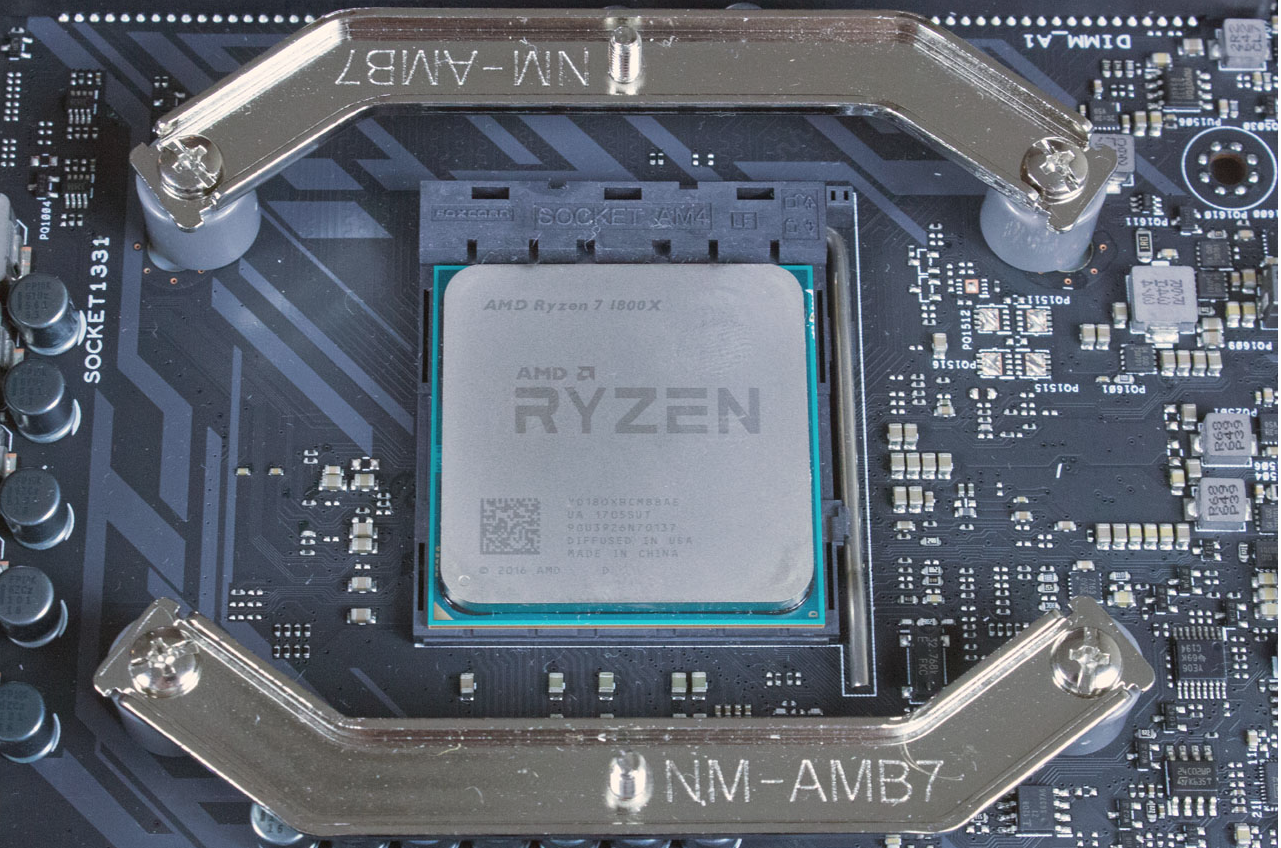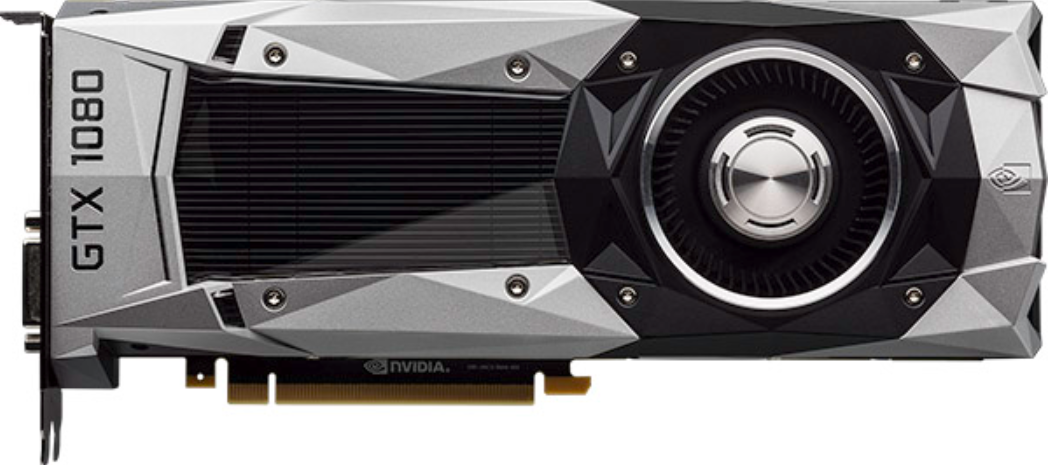How to Choose the Right CPU for 1080p Gaming: 14 Processors Compared
Introduction
Last year, we saw innovation from AMD and Intel that we hadn't experienced in a long, long time. The Zen architecture made AMD competitive in segments of the CPU market it previously couldn't touch, and Intel moved as quickly as possible to defend its incumbent position. We thoroughly enjoyed the back-and-forth as both companies jockeyed for enthusiasts' adoration.

But even as new platforms were springing up with more PCIe connectivity than ever before, graphics-card availability dried up. Cryptocurrency miners bought up everything they could find to capitalize on rising valuations. Even today, you can't find modern models anywhere near their suggested retail pricing. We've resorted to buying pre-built systems and scouring the forums for previous-generation cards, trying to score a bargain.
The best spread of CPU technology in ages, paired with sky-high GPU prices, is a recipe for confusion for PC builders. For the same amount of money, enthusiasts can afford less graphics performance than they could not long ago. That makes it easy to overspend on host processing, since balance is thrown out of whack. But you can also get a lot more CPU for your dollar than this time a year ago. How do you make sure you're getting the most for your budget?
Well, we set out on a mission with 14 CPUs and three different GPUs to find the best combination in nine popular games.
Moving The Goalposts
For the last 11 years, Core i7 and Core i5 CPUs featured four cores. Coffee Lake changed this. Now, Core i3s sport four cores, Core i5s include six cores, and Core i7s boast six Hyper-Threaded cores. Intel also gave its low- and high-end models a makeover: Skylake-X stretches up to 18 cores/32 threads for high-end desktops, while Pentium processors have now gained Hyper-Threading technology.
Of course, AMD introduced its line-up of Ryzen 7, 5, and 3 models with copious core counts. Moreover, the Ryzen Threadripper series landed with up to 16 cores/32 threads and such friendly prices that Intel was forced to make its Skylake-X chips more affordable.
The Contenders
As you might imagine, the old rules of picking a CPU family to go with certain graphics cards changed as a result of these new processors. Thus, we decided to investigate using the best performers from each CPU class.
Get Tom's Hardware's best news and in-depth reviews, straight to your inbox.
Representing AMD, we have the Ryzen 7, 5, and 3 models. We didn't bother testing last-generation Bulldozer-based CPUs, but we did throw in the Ryzen Threadripper 1950X for good measure.

For Intel, we have K-series Core i7, i5, and i3 CPUs from the Coffee Lake and Kaby Lake generations. We also added the Core i9-7900X and Core i9-7980XE to cover high-end desktops. Out of curiosity (or because we're gluttons for benchmarking punishment?), we couldn't help but include two of the latest Pentium processors, too.
That gives us 14 processors spread across five test platforms. We paired these with the GeForce GTX 1080, GTX 1070, and GTX 1060 (6GB) graphics cards. Although the GTX 1080 is considered an extravagance these days, we have to imagine it'll come down in price someday.
Finally, we selected nine games for testing. Some of the titles are new, while others are older. We did weigh the suite, though, more toward modern games. Some of them are CPU-dependent, others are decidedly graphics-bound, and a few are actually pretty well split down the middle. This allows us to explore bottlenecks from different angles.
Today's tests are all run at 1920x1080. (We have more data coming at 2560x1440 and 3840x2160, too, so expect a follow-up story or stories to present our findings there.) To best represent the experience we'd want to have, all benchmarks were run with the highest graphics settings possible.
Test Systems
To avoid variance from GPU Boost as our GeForce GTX graphics cards heat up, we use multiple runs from each benchmark in quick succession. We select the median value from the last recordings.
| Test System & Configuration | |
| Hardware | Intel LGA 1151 (Z370)Core i3-8350KCore i5-8600KIntel Core i7-8700KZ370 Gaming Pro Carbon ACG.Skill RipJaws V DDR4-3200 (2x 8GB) @ 2666/2400AMD Socket AM4Ryzen 3 1300XRyzen 5 1600XRyzen 7 1800XX370 XPower Gaming TitaniumG.Skill RipJaws V DDR4-3200 (2x 8GB) @ 2667 Intel LGA 1151 (Z270)Core i3-7350KCore i5-7600KCore i7-7700KPentium G4620Intel Pentium G4560MSI Z270 Gaming M7G.Skill RipJaws V DDR4-3200 (2x 8GB) @ 2400AMD Socket SP3 (TR4)Ryzen Threadripper 1950X (In Game Mode)Asus ROG Zenith Extreme X399G.Skill RipJaws V DDR4-3200 (2x 8GB) @ 2667 Intel LGA 2066Core i9-7900XCore i9-7980XEMSI X299 Gaming Pro Carbon ACG.Skill RipJaws V DDR4-3200 (2x 8GB) @ 2666 Common To AllEVGA GTX 1080EVGA GeForce GTX 1070 SC2 Gaming iCX 8GB GDDR5Gigabyte GeForce GTX 1060 G1 Gaming 6G Samsung PM863 (960GB) 1TB SilverStone ST1500-TI 1500WHydro H115iWindows 10 Pro 64-bit (Creators Update Version 1703) |
MORE: Best CPUs
MORE: Intel & AMD Processor Hierarchy
MORE: All CPUs Content

Paul Alcorn is the Editor-in-Chief for Tom's Hardware US. He also writes news and reviews on CPUs, storage, and enterprise hardware.
-
psiboy Would Have been good to see fx chips and first gen i series. That could explain why Mine appears to be the only comment in a week!Reply